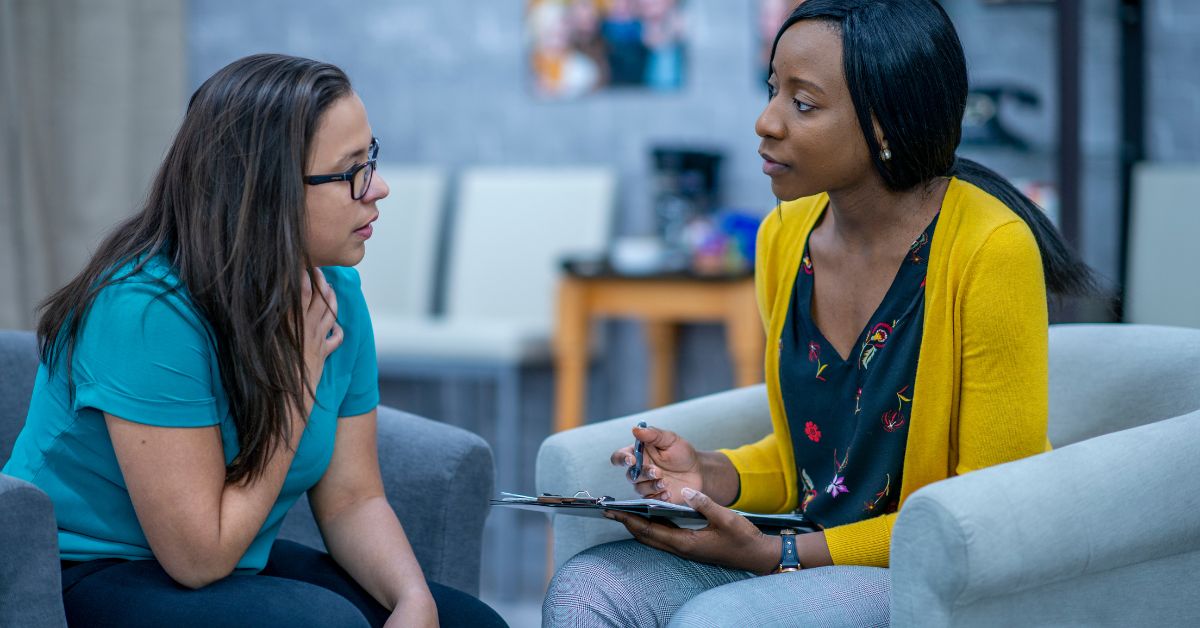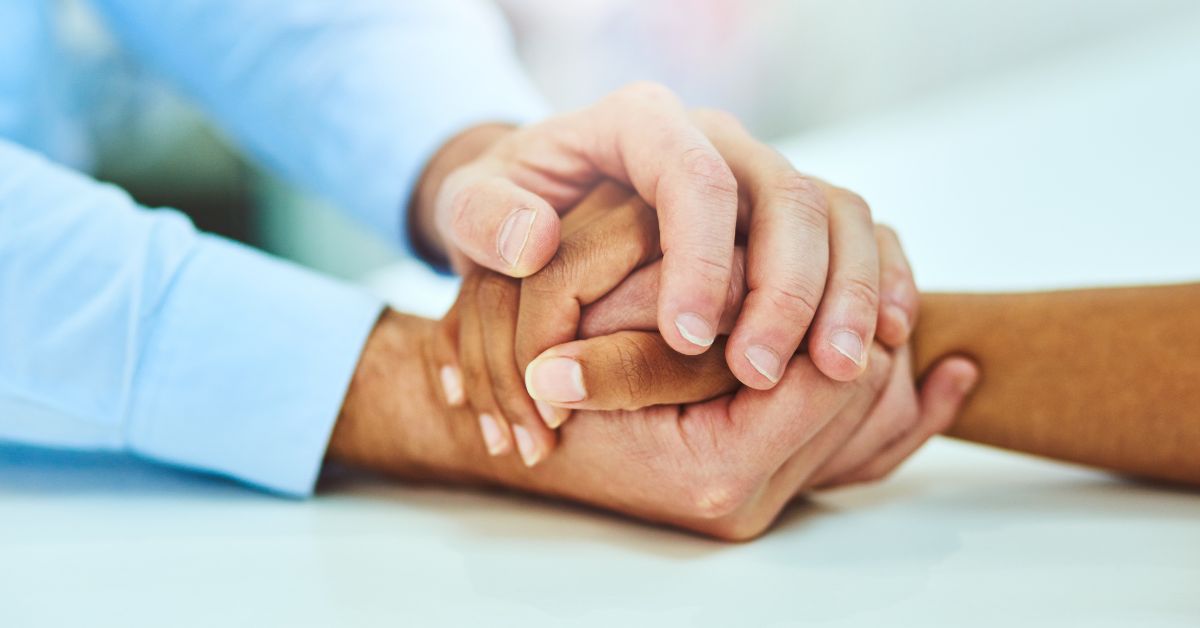As an addiction expert and recovery coach, I have seen firsthand the devastating effects of marijuana addiction on individuals and their families.
While cannabis use is often touted as a harmless drug, it can be an addictive substance and have serious negative consequences for those who use it.
In this article, I will discuss the importance of understanding weed addiction, how to identify signs of addiction, and the role of empathy, support, and patience in helping someone overcome their addiction to marijuana. Whether you are a friend, family member, or healthcare professional, it is crucial that you educate yourself about weed addiction and take steps to support those who are struggling with it.
Educate Yourself About Marijuana Abuse

Helping someone with a weed addiction starts with educating yourself. It’s like learning a new language to communicate with your loved one better. Let’s explore the basics of marijuana use and addiction together.
Let’s start with some facts:
| Statistic | The Numbers |
|---|---|
| Number of American adults who currently use marijuana | 55 million (16.9%) |
| Percentage of Americans who have tried marijuana at least once | 45% |
| Percentage of 12th-graders who have used marijuana in the past year | 24% (2017) |
| Number of Americans who have used marijuana at some point in their lifetime | Approximately 78 million |
| Number of Americans who use marijuana on a monthly basis | Approximately 35 million |
| Number of Americans who reported using marijuana in the past year | 55 million |
| Percentage of Americans who reported increased drug use within the past year | Doubled from 4.1% to 9.1% between 2001 and 2015 |
| Percentage of individuals with marijuana use disorder | Decreased from 35.6% to 30.6% between 2001 and 2013 |
| Percentage of high school students who have tried marijuana | Almost 40% |
| Percentage of marijuana frequent users aged 18 or older who first used marijuana between the ages of 12-17 | Almost 53% |
| Percentage of 12th graders who report daily marijuana use | 6% |
| Percentage of teen drivers who have reported driving under the influence of marijuana | 19% |
| Percentage of young marijuana frequent heavy users who will become addicted to the drug | 13% |
| The potential drop in IQ points from regular marijuana use | Up to 8 points |
Understand marijuana use and addiction
Drug abuse continues to be around for ages, used for a variety of purposes, from healing to having a good time. But it’s important to know the difference between use, abuse, and addiction. Think of it like enjoying a slice of cake now and then (use) versus eating the whole cake every day (abuse), and eventually, your body craves cake non-stop (addiction).
Learn about the psychological and physical effects of substance abuse
On one side, it can bring relaxation, and happiness, and even help with medical issues. On the other side, it can cause anxiety, and paranoia, and make it hard to focus.
Over time, heavy marijuana smoking can impact a person’s life, like a snowball rolling down a hill, gathering size and speed. It can lead to respiratory issues, cognitive decline, health risks, and a higher risk of mental health disorders.
WATCH: Free, confidential workshop that explains how to "Love Another Way"
Familiarize yourself with the withdrawal process
The withdrawal experience can vary for everyone. Some common symptoms of withdrawal include irritability, insomnia, and decreased appetite. Understanding this bumpy ride will help you support your loved one as they face these challenges.
Identify the Signs and Symptoms of Weed Addiction

Like pieces of a puzzle, signs of this drug addiction can come together to form a clear picture. Keep an eye out for behavioral, physical, and emotional changes.
Recognize behavioral changes
Imagine your loved one’s favorite pastime – maybe it’s hiking or painting. Now, picture them losing interest in that activity, preferring to be alone, or having trouble at work or school. These are signs that marijuana may be taking center stage in their life.
Observe physical symptoms
Look for clues in their appearance. Are their eyes red and glassy? Have they gained or lost weight unexpectedly? Are they coughing more than usual? These physical symptoms can be warning signs of a growing addiction.
Monitor emotional and psychological signs
Keep a watchful eye on their emotional state. Are they more anxious or depressed than before? Do they seem paranoid or easily irritated? These changes can signal a deepening reliance on smoking the drug.
By learning the language of weed addiction and recognizing the signs, you’re taking the first steps toward supporting them on their road to recovery.
Communicate with the Person Addicted to Cannabis

Opening the lines of communication with someone you know struggling with weed addiction is the first step toward helping them. It’s like building a bridge between two islands, allowing for a flow of support, understanding, and empathy. Here’s how you can create that connection.
NEW: How to make the shift from "Mom Code" to prioritizing your own well-being
Choose the right time and place
Finding the right moment and environment for a conversation is tricky. Often, people don’t want to talk when they’re high, however, it can be helpful to have the conversation while they’re sober.
Picture a peaceful, private space, free from distractions and potential interruptions. Avoid situations where emotions are running high or where confrontation might arise. This will help create a comfortable and safe atmosphere for both of you.
Use empathetic and non-judgmental language
- When speaking with your loved one, it’s natural to feel frustrated, scared, or sad. But using judgmental language, like “You’re an addict,” or “You need to get help,” will only make them feel ashamed and defensive.
- Approach the conversation with an open heart and an open mind. Put yourself in their shoes and try to understand their feelings and experiences. Focus on using words that convey empathy and validation, rather than blame or shame.
- Active listening is a valuable skill in these conversations. Nod your head, maintain eye contact, and occasionally repeat or paraphrase their statements to show you’re genuinely paying attention. Remember, this isn’t about lecturing or scolding – it’s about creating a meaningful connection and offering support.
Share your concerns and observations
As you discuss the issue, be specific about the behaviors and instances that have concerned you.
For example, you might say, “I noticed you’ve been spending less time with your friends lately, and I’m worried about how isolated you’ve become.”
By focusing on the impact of addiction, you can help your loved one understand the seriousness of the situation.
Throughout the conversation, reinforce your love and support. Let them know you’re there for them, no matter what. This reassurance can make a significant difference in their willingness to accept help and work toward recovery.
Encourage Professional Help to Avoid Health Risks

Life is like a rollercoaster, filled with ups and downs. When someone you care about is struggling with addiction, it’s essential to extend a helping hand and encourage them to seek professional help. Here are some steps you can take to guide them toward a brighter tomorrow:
Discuss the benefits of treatment
Treatment works, and it can be transformative. There are several types of treatment available to address addiction, each tailored to the unique needs of the individual. Let’s explore some of these options:
- Inpatient and outpatient rehabilitation programs provide intensive therapy and support to help individuals overcome addiction.
- Behavioral therapies, such as cognitive-behavioral therapy (CBT) or dialectical behavior therapy (DBT), teach coping skills to manage desire and avoid triggers.
- Medication-assisted treatment (MAT) combines medications with counseling to treat cannabis use disorders, especially for opioids and alcohol addiction.
The success rates for these treatments can be truly inspiring. Many people believe in recovery as it helps find renewed purpose, improved relationships, and a life free from the chains of addiction. By emphasizing these potential outcomes, you can help instill hope in your loved one.
Help them find appropriate resources
Sometimes, the sheer number of resources available can be overwhelming. Be a guiding light by assisting them in finding the right path for their recovery:
- Research local rehabilitation centers and identify ones that specialize in treating their specific addiction.
- Look for therapists and counselors who have experience in addiction treatment. A professional with the right expertise can make all the difference.
- Explore online resources, such as websites offering information about addiction and recovery, or support groups like Alcoholics Anonymous or Narcotics Anonymous. These can provide a sense of community and understanding that’s invaluable during the recovery process.
SEE: Find out why your boundaries keep getting crossed (and how to reinforce them)
Offer assistance with logistics
Recovery can be a winding road, and sometimes the logistics of getting help can be a barrier. Be a beacon of support by offering assistance with the practical side of seeking treatment:
- Help schedule appointments with therapists, counselors, or rehab centers. Having someone to navigate the process can alleviate stress and anxiety.
- Offer transportation to and from appointments, if possible. This simple gesture can make a world of difference to someone taking the first steps toward recovery.
- If you’re able, provide financial support to cover parts of the treatment costs or offer to help research financial assistance programs. Removing financial obstacles can make the path to recovery smoother.
Remember, when you’re helping someone on their journey to recovery, every little bit counts. By offering encouragement, guidance, and practical assistance, you can help your loved one find hope and healing in their battle against being addicted to cannabis. And as they take steps towards a brighter future, you’ll be there, cheering them on every step of the way.
Support Their Recovery Process Towards Being Sober

Like a gardener tending to delicate seedlings, supporting someone in their recovery is a nurturing and continuous process. Your involvement can help them blossom into their best selves, as they work towards a life of sobriety. Here are some ways to show support during their recovery journey:
Attend therapy sessions or support group meetings
A strong support network is crucial to recovery. By attending therapy sessions or support group meetings with your loved one, you’re not only showing your commitment to their well-being, but you’re also gaining valuable insights into their recovery process:
- Learn about coping strategies and techniques that can help them manage cravings and avoid triggers. This knowledge will enable you to better support them during challenging times.
- Connect with other individuals and families going through similar experiences, creating a sense of camaraderie and mutual understanding that can bolster everyone’s resolve.
Encourage healthy lifestyle changes
Help your loved one put these pieces together by encouraging them to embrace positive changes:
- Exercise and nutrition are key components of a healthy lifestyle. Encourage them to engage in regular physical activity and adopt a balanced diet. These habits will not only improve their physical well-being but also boost their mental health.
- Stress management and relaxation techniques, such as mindfulness meditation or yoga, can help them navigate the challenges of recovery with greater ease. Encourage them to explore different methods and find what works best for them.
- Nurture their social support network by introducing them to new hobbies or activities that can help build connections with others who share similar interests. This can create an uplifting environment that fosters personal growth and resilience.
WATCH: Free, confidential workshop that explains how to "Love Another Way"
Be patient and understanding
Recovery is a journey, not a destination. It’s a good idea to approach your loved one’s recovery process with patience and understanding:
- Recognize that recovery is a process that takes time and effort. It’s not a straight path, and there will be ups and downs along the way.
- Expect setbacks and obstacles, as they are a natural part of the journey. When they occur, remind them of their progress and the strength they’ve shown in overcoming challenges.
- Reinforce your ongoing support, no matter how bumpy the road may be. Your unwavering encouragement can be a powerful force, helping them stay focused on their goals and maintain the determination to continue moving forward.
As you support your loved one during their recovery, remember that your compassion, understanding, and encouragement can be the guiding star that helps them navigate the darkest nights and reach the dawn of a healthier, happier life.
Take Care of Yourself

As you embark on the journey to support a loved one in their recovery, it’s crucial to remember that you, too, are a vital part of this story. Like an anchor that keeps a ship steady during a storm, taking care of yourself ensures that you can provide unwavering support to them. Here are some ways to prioritize your well-being:
Seek support for yourself
You don’t have to face this journey alone. Reach out to others who understand your experience and can offer guidance:
- Join a support group for family members affected by addiction, such as Al-Anon or Nar-Anon. These groups provide a safe space to share your feelings, learn from others’ experiences, and find solace in knowing you’re not alone.
- Consider talking to a therapist or counselor who specializes in addiction and family dynamics. They can help you navigate the emotional challenges and develop coping strategies to support both your loved one and yourself.
Set boundaries and maintain self-care
Like a lighthouse illuminating the shore, setting boundaries and practicing self-care will help you maintain balance and stability during turbulent times:
- Establish limits to protect your own well-being. Recognize that you cannot control their actions, and it’s essential to prioritize your own emotional and physical health.
- Ensure adequate self-care by engaging in regular exercise, eating a balanced diet, and practicing stress management techniques like meditation or journaling. Taking care of yourself enables you to be a pillar of strength for them.
Recognize the signs of codependency
Codependency can be a hidden snare, entangling you in unhealthy patterns that may hinder your loved one’s recovery and your own well-being:
- Understand codependent behavior, which often involves enabling addiction, sacrificing personal needs, or excessive reliance on the other person for validation and self-worth.
- Identify unhealthy patterns in the relationship, such as neglecting one’s own needs, feeling responsible for the actions, or constantly seeking approval.
- Seek help to address codependency through motivational enhancement therapy, support groups, or self-help resources. Untangling the web of codependency will allow both you and your loved one to grow and flourish independently.
By taking care of yourself, seeking support, and addressing codependency, you’ll be able to weave a stronger, more vibrant bond with them as they journey toward recovery. Remember, you too deserve love, care, and compassion in this process.
Are You Ready to Make a Difference in Their Journey?

In conclusion, helping someone with a weed addiction involves a series of steps that require empathy, patience, and unwavering support.
From initiating a conversation and educating yourself about addiction to encouraging professional help, supporting their recovery process, and taking care of your own well-being, each step is crucial in guiding your loved one towards a healthier and happier life.
Remember, your involvement in their recovery journey can make a profound difference, so stay committed, prioritize self-care, and together, you’ll navigate the path toward healing and growth.
WATCH: Free, confidential workshop that explains how to "Love Another Way"
Frequently Asked Questions About Cannabis Addiction
How do you cut back an addiction?
To cut back on addiction, it is essential to seek professional help and support, such as therapy or counseling, to develop a personalized treatment plan. Implementing healthy coping strategies, setting realistic goals, and building a strong support network can also aid in cutting back on addiction.
How long does it take for cannabinoid receptors to return to normal?
The time it takes for cannabinoid receptors to return to normal can vary depending on several factors, including the duration and intensity of marijuana use. Generally, it may take a few weeks to a few months for cannabinoid receptors to regulate back to normal functioning after cessation of using the drug.
Can CBD oil help with addiction?
While more research is needed, some studies suggest that it may have the potential in reducing addictive behaviors and cravings associated with various substances, including smoking marijuana. However, it is important to note that the use of the drug should be under professional guidance as part of a comprehensive addiction treatment plan.
Does CBD stop you from overthinking?
This may help reduce overthinking and anxiety for some individuals. It interacts with the endocannabinoid system, potentially promoting a sense of calm and relaxation. However, the effects of it can vary from person to person, and it is recommended to consult with a health professional for personalized advice.
Why is CBD good for recovery?
CBD has been studied for its potential benefits in promoting recovery from addiction. It may help reduce anxiety, improve sleep quality, and alleviate withdrawal symptoms, which can support individuals in their journey toward recovery. However, further research is needed to fully understand the effectiveness and specific applications of it in addiction recovery.
Sources

Thank you for this very informative article. You are providing a very useful and empathetic service to many people. God bless you!
Thank you Janet – and find a pocket of joy today. -B